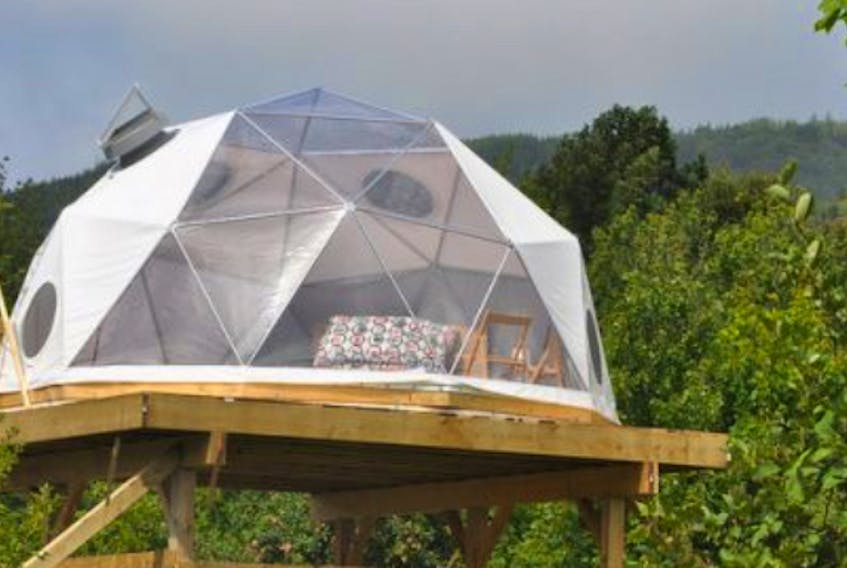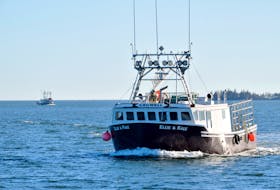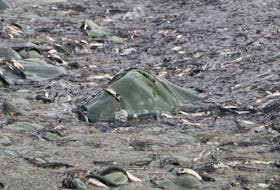A family-owned resort and retreat centre on Cape Breton Island is expanding during the COVID-19 lockdown in its bid to ensure patrons can socially distance while enjoying outdoor concerts, yoga, weddings and other events.
Paul and Barbara Weinberg and their grown children own Indian Brook Adventures Inc., the company that operates the 15-year-old Cabot Shores Wilderness Resort and Retreat Centre just off the Cabot Trail.
A privately-owned company, it does not divulge either its revenues or profits but Paul Weinberg says it has been solidly in the black for years.
“We’ve grown over the last five years at an average rate of 20 per cent per year,” he says.
Then, COVID-19 hit.
Avoiding a shutdown
“During the first six months of COVID-19, we were at 60 to 70 per cent (of usual revenues),” says Weinberg.
Despite that economic blow, Cabot Shores never shut down. It continued serving essential workers, including utility crews, stressed-out nurses and physicians, and employees of food distribution companies.
“They could socially distance here and take a walk in nature in snowshoes and stay safe, not only for themselves but also for the public,” says Weinberg.
The resort adapted to the pandemic by switching to online registration, including a form guests had to fill out and sign indicating they did not have COVID symptoms and had not travelled to high-risk areas.
“We sent everything out by e-mail …. including the liability waiver and document for indemnification,” says Weinberg. “They would go to our deck and have a map and then go to their yurt, always with social distancing.”
Staying in the resort’s dozen yurts and six dome tents usually means using outhouses and communal showers. During the pandemic, though, guests were provided with dedicated bathrooms and showers.
“They would stay in the yurt and then go inside the lodge and use a washroom that only they could use,” says Weinberg. “It was a huge amount of work to ensure the safety requirements were in place.”
Guests were provided with menus ahead of their stay and would fill out their meal requests 24 hours ahead of time. Early in the pandemic, these meals were cooked and delivered to them through the snow by employees on snowshoe. Later, the guests were allowed back into the lodge’s bistro with social distancing in effect.
The layout
Sprawled out over 55 acres, Cabot Shores features a tiny house, four chalets, 12 campsites and five rooms in a lodge in addition to the yurts and cottages. The business also provides accommodations in a five-bedroom farmhouse on a roughly 60-acre property down the road.
Two years ago, Cabot Shores expanded with an events building with a workshop and laundry facilities on the bottom floor and more than 1,000 square feet of flex meeting space upstairs. That building features a deck running along its width and solar panels on the roof. These generate electricity that’s returned to the grid.
Nearby, the “red dragon” 700-square-foot yurt is a popular destination for yoga retreats, conferences, special events and weddings, says Weinberg.
“We’ve had people get married in the red dragon yurt and have their reception in the events building,” says Weinberg.
Even though Covid-19 restrictions were relaxed in June, many of the resort’s events were cancelled this year. That created a cash-flow crunch.
When cancellations started rolling in, the business had to refund about $40,000 in deposits which it usually uses during the off-season to pay workers.
Brass tacks
Last year, Cabot Shores employed 25. This year, it has cut its workforce down to 15. But the business still has to pay its mortgage, property taxes, insurance and other bills.
Weinberg turned to the $40,000 interest-free Canada Emergency Business Account loan. Up to 25 per cent of that loan does not need to be paid back, provided the borrower pays it back by the end of 2022. The business also got another roughly $60,000 loan from the Atlantic Canada Opportunities Agency.
A $10,000 business resiliency award from the Canadian Chamber of Commerce gave Cabot Shores a much-needed boost.
The Canada Emergency Wage Subsidy helped with the payroll during the leaner months.
The loans are being used to cover the business’ operating expenses - and expand.
Last year, the resort bought a GARN high-efficiency wood boiler. Then it took a wood shed, raised it, added a concrete floor and turned it into the building to house that boiler.
In a bid to build their business’ ability to host concerts during the pandemic with social distancing, the Weinbergs have also built an outdoor stage on top of what will be a shed for firewood near the lodge.
“We call that stage Woodstack,” says Weinberg. “All summer, twice a week, we had outdoor, socially-distanced concerts. We cook up a feast in the lodge … and next to it is the stage and picnic tables and stage and a deck along the side of the lodge.
With its ample space for social distancing, Cabot Shores was even able to host a wedding and the Gaelic KitchenFest! musical festival . That brought revenues back to normal for September and October.
Throughout the pandemic, Cabot Shores’ isolated yurts and cottages have even drawn the attention of those seeking to self-isolate after returning to Nova Scotia from either Europe or other Canadian provinces.
Most recently, a Buddhist monk returning from visiting her daughter in Quebec self-isolated at Cabot Shores before returning to Gampo Abbey, a Tibetan Shambhala monastery near Pleasant Bay.
In all, only eight people have used the resort to self-isolate comfortably upon their return to Nova Scotia, but the requests keep trickling in.
“Right now, we’re getting requests, including one from someone coming from London, England to Nova Scotia who wants to quarantine here because one of their relatives is from Sydney and they saw the space between the buildings,” says Weinberg.
With the restrictions on international travel, Cabot Shores has seen a shift in those who stay at the resort. European tourists, Ontarians and Quebeckers are absent this year. But local business is up.
“We’ve had more people from Cape Breton and Nova Scotia than we’ve ever had before as a percentage,” says Weinberg.
Heading into the winter off-season, Cabot Shores is adding holiday packages, including a proposed concert on Jan. 2, to bring in Nova Scotians who would usually head south for their vacations.
“It looks like we may have more holiday business between Christmas and New Year’s,” says Weinberg. “There’s a pent-up demand of people that normally would go someplace warm.”
The Pivot is a regular business feature about an Atlantic Canadian company adapting to new market realities with innovative products, services or strategies. To suggest a business for The Pivot, please e-mail: [email protected].









